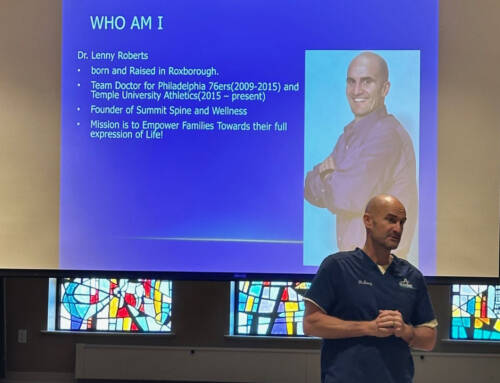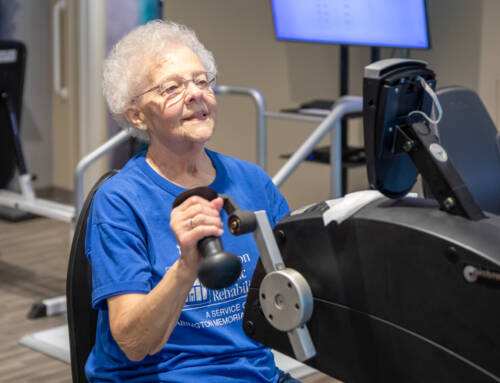February is American Heart Month, a time when the nation spotlights heart disease, the number one killer of Americans. During this month, people are encouraged to focus on their cardiovascular health, and understand, prevent and treat heart disease.
You can control certain heart disease risk factors by performing physical activity, maintaining a healthy weight and reducing stress in your life, according to Morgan Piratzky, program manager at Bayada Home Health Care, who covered the topic with residents during a presentation at Masonic Village at Lafayette Hill.
Did you know the human heart weighs less than a pound and is the size of an adult fist? Or that the heart is a muscle that beats 115,000 times a day?
Morgan presented these fun facts and more before explaining how the heart works, common conditions and symptoms and steps to keep your heart healthy.
The term “heart disease” or “cardiovascular disease” generally refers to conditions that involve narrowed or blocked blood vessels that can lead to a heart attack, chest pain (angina) or stroke. Other heart conditions, such as those that affect your heart’s muscle, valves or rhythm, also are considered forms of heart disease.
Common conditions include coronary artery disease or plaque buildup, arrhythmia or irregular heartbeat, and heart failure, where the heart muscle doesn’t pump as well.
It is important to recognize early symptoms of heart disease, which can differ in both men and women. There is a higher mortality rate in women, because the symptoms can mimic indigestion or arm pain.
Symptoms can include fatigue, shortness of breath, swollen feet or ankles, dizziness, chest pain and nausea. If you notice these symptoms, notify your physician or a health team member.
Many forms of heart disease can be prevented or treated with healthy lifestyle choices.
Morgan’s recommended lifestyle modifications include stopping smoking, reducing your cholesterol, keeping your diabetes under control, eating healthy foods and avoiding sodium, which can make you retain fluid and add to your weight.
It’s also important to make sure your doctor knows your medical history, as there are certain risk factors, like sex, age (over 65) and family history that you cannot change.
You should take all medications as directed and speak to your doctor about diuretics (used to treat high blood pressure), ACE inhibitors (medicines that help relax the veins and arteries) or taking anticoagulants or blood thinners.




